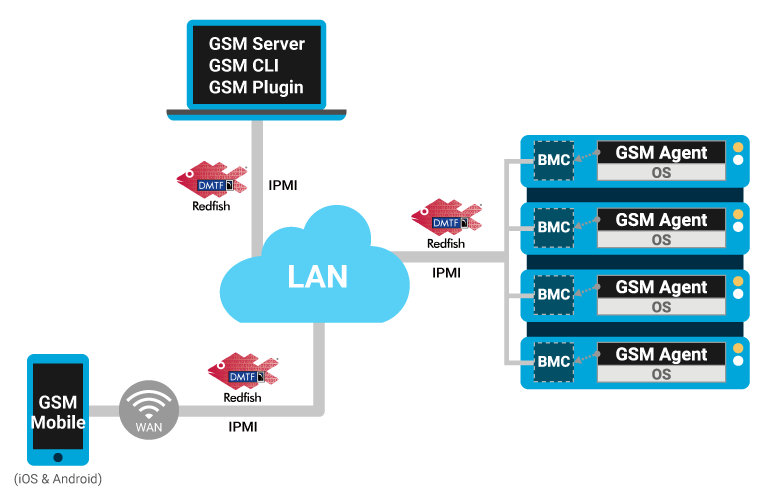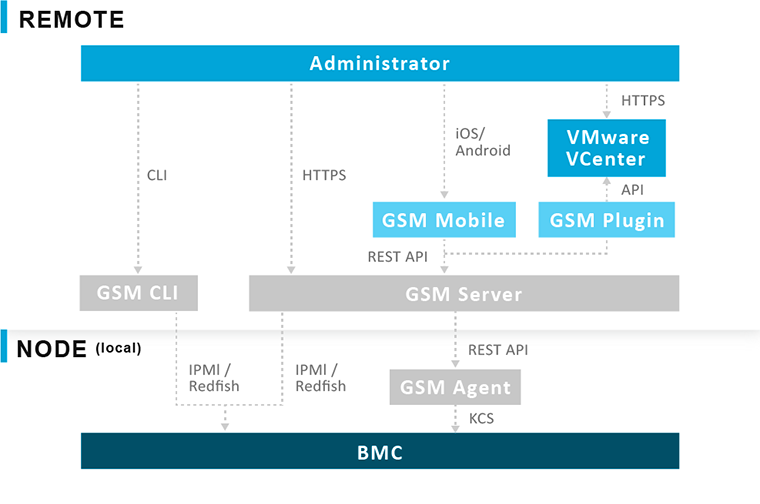AMD EPYC™ 4004 for 24x7 Business Growth and Manageability
AMD EPYC™ 4004 Series Processors are a welcome addition to the 4th Gen AMD EPYC™ processor family, lowering the threshold for businesses and hosting services that have been wanting to move to a platform with a server OS and other enterprise features, yet at an optimal price point in GIGABYTE solutions. SMB and hosting services rely on server-grade reliability so they can continue running 24x7. At the same time, they need to have a higher degree of manageability. On top of validating, GIGABYTE provides GIGABYTE Management Console (GMC) for system management and GIGABYTE Server Management (GSM) software for monitoring multiple servers.
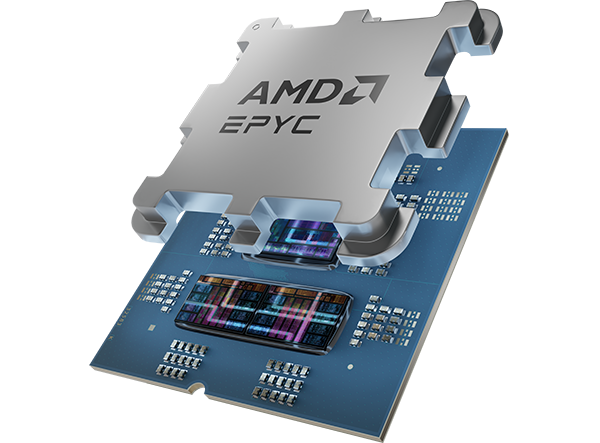
The Rising AM5 Platform
AMD AM5 Socket is versatile as it can support the consumer platform yet is able to step into the field of enterprise-level applications, and GIGABYTE has motherboards, workstations, and servers to support it. Taking advantage of its low cost per core and high core count options, the first processor on this platform, the AMD Ryzen™ 7000 Series, has proven its value in the enterprise server market. Its successor, the AMD EPYC™ 4004 Series, now further expands capabilities by including even more enterprise features. These “Zen 4” architecture processors can easily handle compute-heavy workloads yet are versatile enough for users to find an optimal choice for applications where performance, productivity, and efficiency matter.
Zen 4
architecture
Up to 16
cores
5nm
technology
AM5
socket
B650E
chipset
PCIe 5.0
support
DDR5
memory
Select GIGABYTE for the AMD EPYC™ 4004 Platform

Support for Server OS
GIGABYTE has validated platforms for compatibility with Windows Server, Ubuntu, and RHEL for greater manageability and security.

Ease of Management
GIGABYTE servers come with GIGABYTE Management Console for IPMI management. And with a server OS, greater management and control is possible.

Continuous Operation
Systems have RAS features for continuous uptime and availability as users require and expect stable performance around the clock.

Energy Efficient
Our engineers have created a highly eco-friendly entry level server platform for EPYC 4004 with fan profiles and a PSU with efficiency ≥ 89%.

Performance
Up to 16 cores and 32 threads, AMD EPYC 4004 can reach its potential in GIGABYTE platforms for mission-critical and general-purpose server workloads.
E133-C10-AAA1 Product Overview
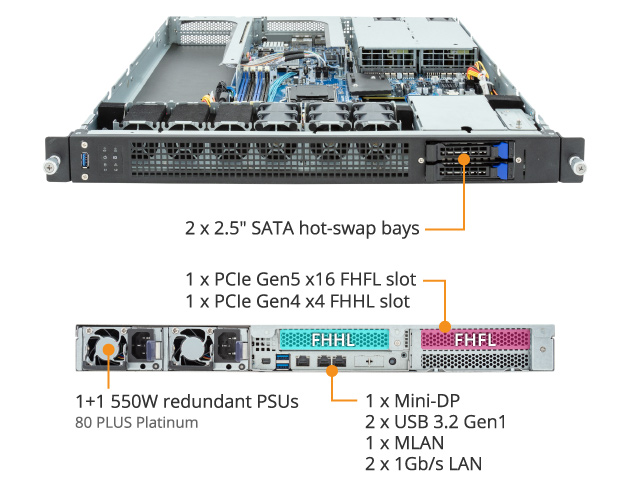
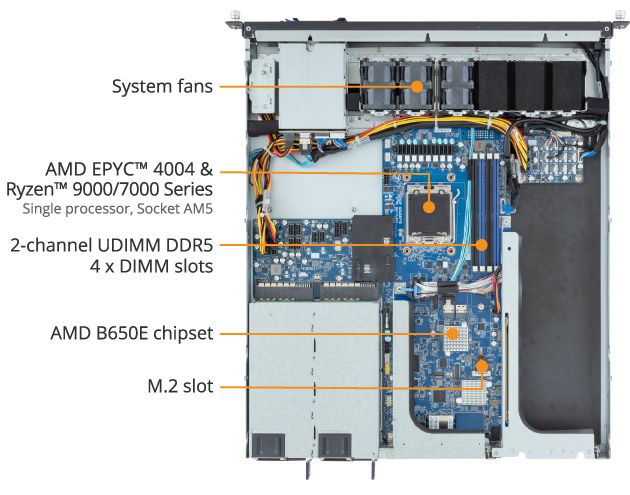
E133-C10-AAA1 Block Diagram
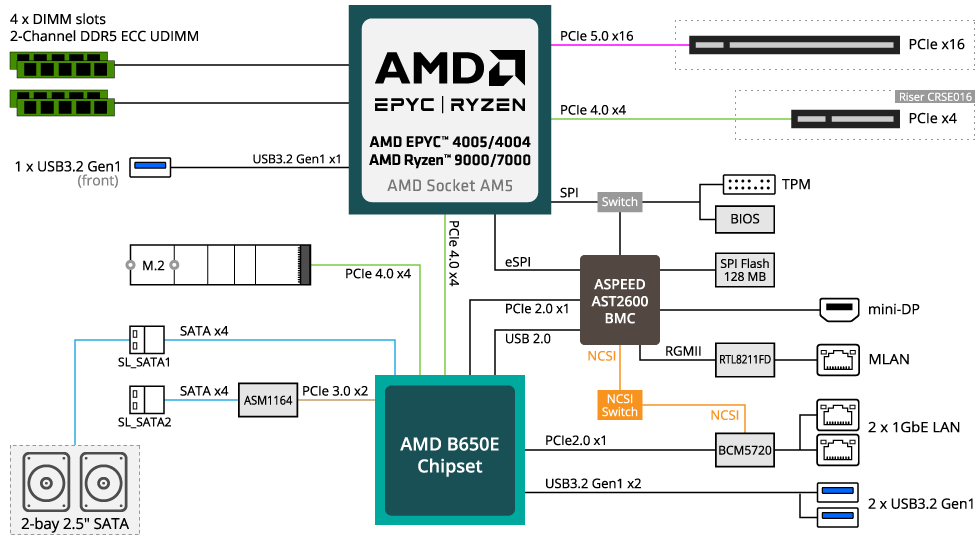
Power Efficiency
Automatic Fan Speed Control
GIGABYTE servers are enabled with Automatic Fan Speed Control to achieve the best cooling and power efficiency. Individual fan speeds will be automatically adjusted according to temperature sensors strategically placed in the servers.
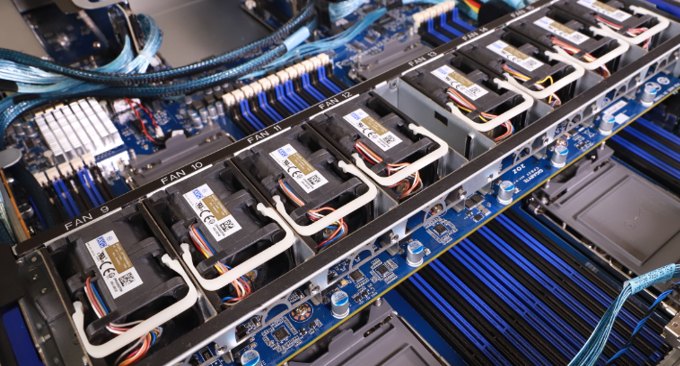
Cold Redundancy
To take advantage of the fact that a PSU will run at greater power efficiency with a higher load, GIGABYTE has introduced a power management feature called Cold Redundancy for servers with N+1 power supplies. When the total system load falls lower than 40%, the system will automatically place one PSU into standby mode, resulting in a 10% improvement in efficiency.
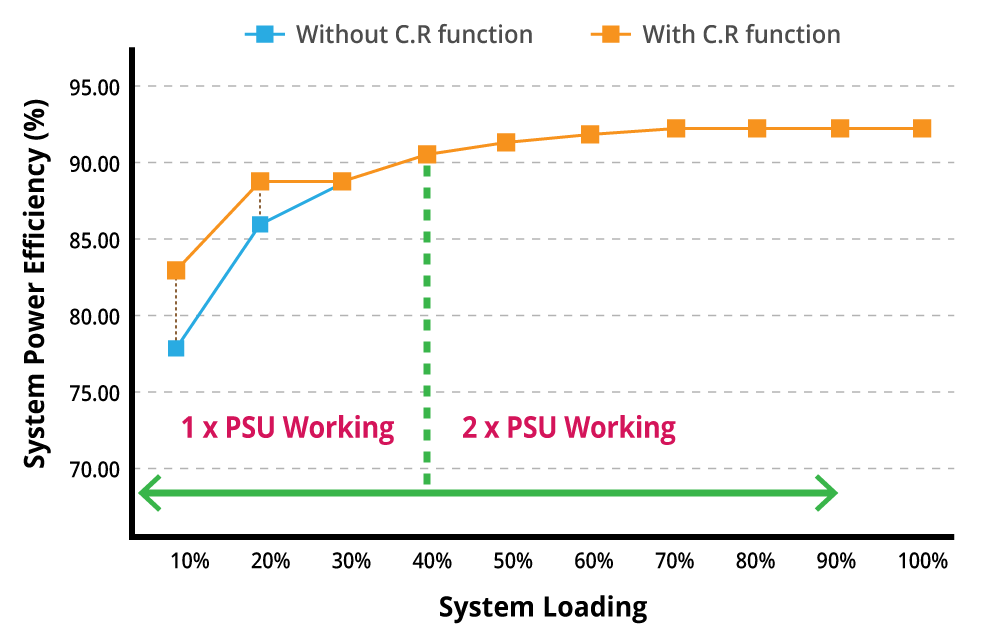
High Availability
Smart Ride Through (SmaRT)
To prevent server downtime and data loss as a result of loss of AC power, GIGABYTE implements SmaRT in all our server platforms. When such an event occurs, the system will throttle while maintaining availability and reducing power load. Capacitors within the power supply can supply power for 10-20ms, which is enough time to transition to a backup power source for continued operation.

Smart Crises Management and Protection (SCMP)
SCMP is a GIGABYTE patented feature which is deployed in servers with non-fully redundant PSU design. With SCMP, in the event of faulty PSU or overheated system, the system will force the CPU into an ultra-low power mode that reduces the power load, which prevents the system from unexpected shutdown and avoids component damage or data loss.
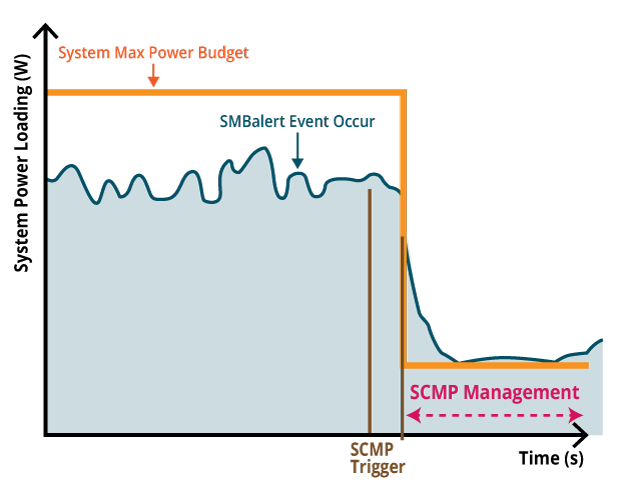
Hardware Security
Optional TPM 2.0 Module
For hardware-based authentication, the passwords, encryption keys, and digital certificates are stored in a TPM module to prevent unwanted users from gaining access to your data. GIGABYTE TPM modules come in either a Serial Peripheral Interface or Low Pin Count bus.

User Friendly
Tool-less Drive Bays Design
Clipping mechanism secures the drive in place. Install or replace a new drive in seconds.

Value-added Management
GIGABYTE offers free-of-charge management applications via a specialized small processor built on the server.
GIGABYTE Management Console
For management and maintenance of a server or a small cluster, users can use the GIGABYTE Management Console, which is pre-installed on each server. Once the servers are running, IT staff can perform real-time health monitoring and management on each server through the browser-based graphical user interface. In addition, the GIGABYTE Management Console also provides:
- Support for standard IPMI specifications that allows users to integrate services into a single platform through an open interface
- Automatic event recording, which can record system behavior 30 seconds before an event occurs, making it easier to determine subsequent actions
- Integrate SAS/SATA/NVMe devices and RAID controller firmware into GIGABYTE Management Console to monitor and control Broadcom® MegaRAID adapters.
GIGABYTE Server Management (GSM)
GSM is a software suite that can manage clusters of servers simultaneously over the internet. GSM can be run on all GIGABYTE servers and has support for Windows and Linux. GSM can be downloaded from GIGABYTE website and complies with IPMI and Redfish standards. GSM includes a complete range of system management functions that includes the following utilities:
- GSM Server: A software program that provides real-time, remote control using a graphical user interface through an administrator’s computer or through a server in the cluster. The software allows ease of maintenance for large clusters of servers.
- GSM CLI: A command-line interface for monitoring and managing remotely.
- GSM Agent: A software program installed on each GIGABYTE server node that retrieves information from each system and devices through the OS, and this software integrates with GSM Server or GSM CLI.
- GSM Mobile: A mobile app for both Android and iOS that provides admins with real-time system information.
- GSM Plugin: An application program interface that allows users to use VMware vCenter for real-time monitoring and management of server clusters.
